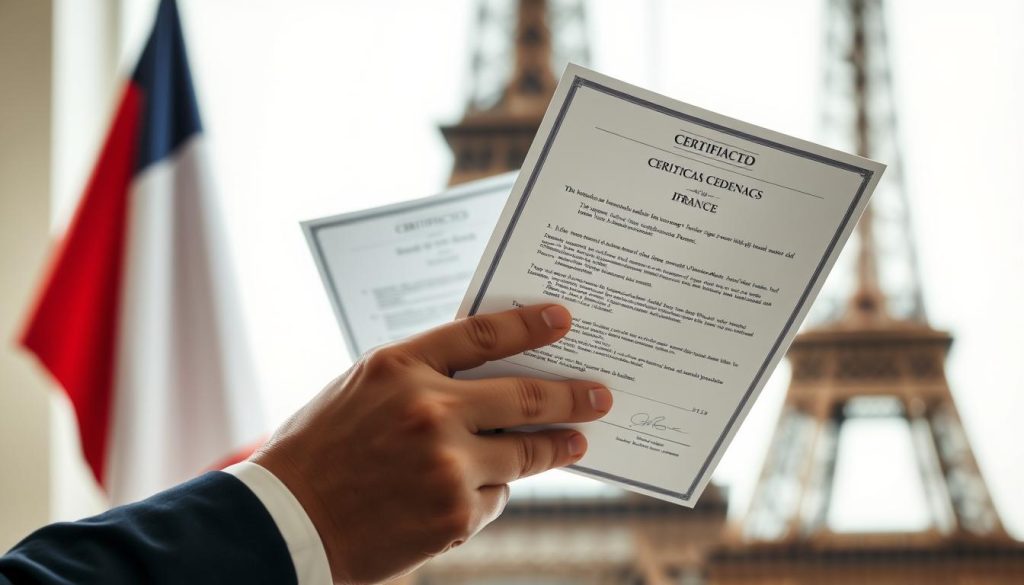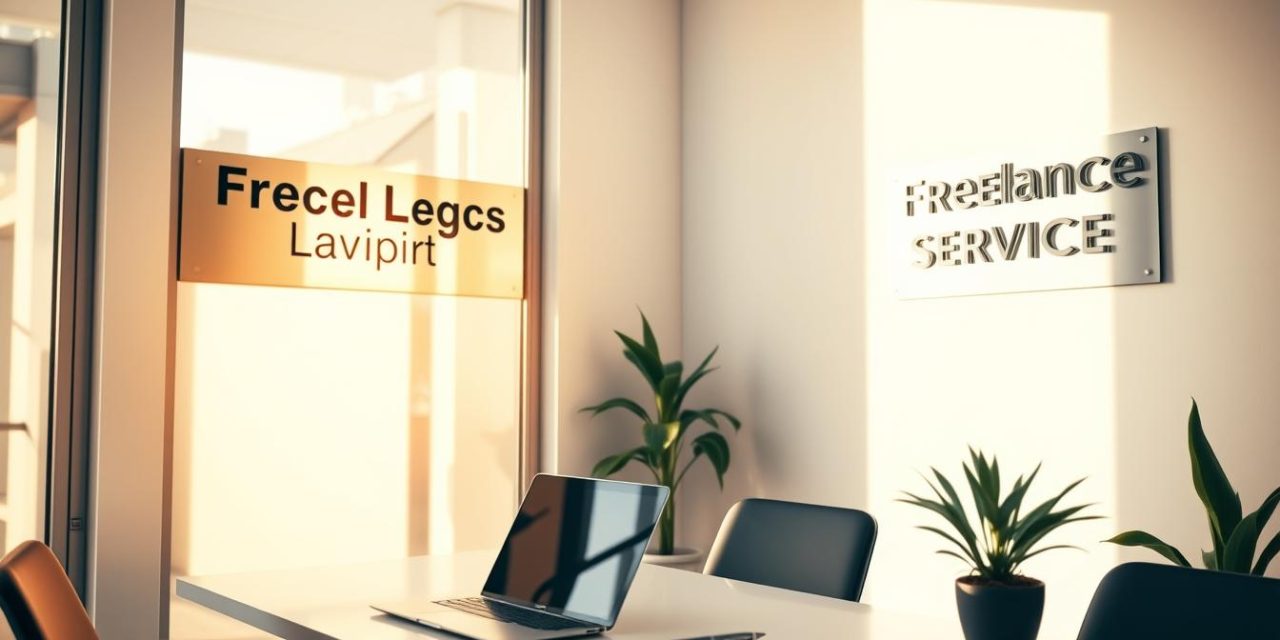French companies today need adaptable legal support that grows with their needs. The traditional law firm model doesn’t always fit modern business demands.
This directory connects businesses with qualified professionals offering flexible legal work. It’s a modern solution that matches companies with the exact expertise they require.
The freelance approach provides significant advantages over conventional arrangements. Companies can scale support up or down based on current projects and budgets.
Various specialized services are available through these independent experts. From contract review to compliance guidance, businesses find tailored assistance.
This comprehensive resource helps French organizations access quality talent. It simplifies the process of finding reliable legal professionals.
Table of Contents
Key Takeaways
- Freelance legal services offer flexible support for French businesses
- This directory connects companies with qualified legal professionals
- Independent legal work provides cost-effective alternatives to firms
- Services can be scaled to match business needs and budgets
- Various specialized legal assistance is available through freelancers
- The French market shows growing acceptance of this modern solution
- Businesses of all sizes benefit from this adaptable approach
Understanding Freelance Legal Services in the French Market
France’s business landscape is evolving rapidly. Companies seek flexible support that adapts to their changing requirements. Independent legal professionals offer this adaptability through project-based arrangements.

This approach differs significantly from traditional law firm structures. It provides specialized expertise without long-term commitments. Businesses can access top talent precisely when they need it.
What Defines Independent Legal Practice in France
French regulations govern this practice area carefully. All practitioners must maintain active bar membership. They follow strict professional conduct rules established by the French Bar Association.
These professionals operate independently rather than within firms. They handle client matters directly while maintaining full professional responsibility. This structure allows for more personalized attention to each client’s unique needs.
The Growing Demand for Flexible Legal Solutions
Economic factors drive increased interest in alternative legal support. Companies want cost-effective solutions that match their budget cycles. Project-based work fits perfectly with this economic reality.
Business requirements change throughout the year. Seasonal fluctuations and project-based work create variable legal needs. Independent practitioners provide exactly the right amount of support at the right time.
Many organizations now prefer this agile approach. It allows them to scale their legal support up or down as required. This flexibility proves particularly valuable for growing businesses and startups.
How French Regulations Shape Independent Legal Work
France’s regulatory framework ensures high professional standards. All practitioners must carry professional liability insurance. This protects clients while maintaining trust in the system.
Data protection laws significantly impact document handling. The RGPD (General Data Protection Regulation) requires strict confidentiality measures. Practitioners must implement secure communication and storage protocols.
French businesses benefit from this regulated environment. They receive quality assistance while knowing their matters remain protected. The system balances flexibility with necessary safeguards.
| Aspect | Traditional Law Firms | Independent Practice |
|---|---|---|
| Cost Structure | Higher overhead costs | Project-based pricing |
| Flexibility | Fixed retainer models | Scalable support |
| Specialization | General practice areas | Niche expertise |
| Response Time | Standard business hours | Often more responsive |
| Regulatory Compliance | Bar association rules | Same standards apply |
French companies increasingly appreciate this modern approach to legal support. It combines professional expertise with business-friendly flexibility. Many find it perfectly suited to today’s dynamic market conditions.
For those seeking ongoing support, legal accompaniment provides comprehensive assistance with business creation, contracts, and regulatory compliance.
Benefits of Using Freelance Legal Services for French Businesses
Many companies in France discover smart advantages when choosing flexible legal arrangements. This approach brings financial and operational benefits that traditional models cannot match.

Cost-Effective Legal Support Without Long-Term Commitments
Businesses save money by paying only for the work they need. The pay-per-project model eliminates expensive retainers and overhead expenses.
Companies avoid long-term financial commitments. They can allocate resources more efficiently across different business areas.
According to industry reports, thousands of firms use this model to reduce costs and increase profits. One platform alone has facilitated over 20,000 successful placements.
Access to Specialized Expertise On Demand
French organizations can tap into niche knowledge precisely when required. They don’t need to maintain expensive in-house teams for occasional needs.
This access to specialized skills means better quality work. Companies get expert assistance that might otherwise be too costly.
The arrangement allows testing different providers without long-term contracts. Businesses find the perfect match for their specific requirements.
Scalable Solutions for Fluctuating Legal Needs
Legal requirements change with business cycles and projects. Flexible support grows or shrinks to match these evolving needs.
Companies save valuable time by outsourcing specific tasks to experienced professionals. This efficiency lets teams focus on core business activities.
The approach provides remarkable budgeting flexibility. Financial planning becomes more predictable and manageable.
| Business Need | Traditional Approach | Flexible Solution |
|---|---|---|
| Cost Management | Fixed monthly expenses | Pay only for work used |
| Expert Access | Limited to firm’s roster | Specialists available on demand |
| Scalability | Rigorous capacity limits | Adjusts to project needs |
| Time Efficiency | Standard processes | Focused task completion |
| Quality Level | Consistent firm standard | Top expertise per project |
French businesses gain competitive advantage through this adaptable approach. They access premium expertise while maintaining cost control.
For comprehensive assistance with business creation and compliance, consider legal accompaniment services that provide ongoing support.
How Freelance Legal Services Work in Practice
Modern legal assistance platforms have transformed how French organizations connect with qualified professionals. The process follows clear steps that ensure smooth collaboration and excellent results.
The Project Posting and Matching Process
Businesses begin by creating a free account on specialized platforms. They receive a dedicated advisor who understands their specific needs.
Posting a project involves describing the required work in detail. Companies specify their budget, timeline, and desired expertise areas.
Qualified professionals then review these opportunities. They submit applications showcasing their relevant experience and training.
The matching process uses smart algorithms and human review. This ensures clients connect with the right expertise for their project.
Secure Communication and Document Handling
All interactions occur through encrypted communication channels. This protects sensitive information and maintains client confidentiality.
Document libraries provide organized storage for all project materials. They comply with French data protection regulations including RGPD requirements.
Secure messaging systems allow real-time collaboration. Teams can discuss progress without compromising security standards.
Quality Assurance and Revision Procedures
Every delivered project undergoes thorough quality checks. Professionals follow established standards for legal work.
Clients can request revisions if adjustments are needed. Most platforms offer reasonable revision periods for delivered work.
Performance metrics track provider effectiveness over time. Feedback systems help maintain consistent service quality.
Payment processes use escrow services for protection. Flat fee pricing with time cards provides transparent billing for French clients.
Project management tools coordinate all aspects of the work. They create an efficient way to handle complex legal matters.
This structured approach ensures successful outcomes for businesses. It combines professional expertise with modern technology solutions.
Types of Freelance Legal Services Available in France
French businesses can access diverse expertise through independent professionals. These specialists handle various complex matters with precision and care.

Contract Drafting and Review Services
Skilled professionals create detailed agreements for business needs. They ensure all terms protect client interests effectively.
These experts review existing documents for potential issues. They identify areas needing improvement or clarification.
Many companies use these specialists for prestation contracts and other important agreements. This ensures proper protection for all parties involved.
Legal Research and Memorandum Preparation
Attorneys conduct thorough investigations into French regulations. They analyze how laws apply to specific business situations.
Professionals prepare detailed memorandums explaining legal positions. These documents help companies make informed decisions.
Research covers various French legal codes and precedents. This provides solid foundation for business strategies.
Document Review for Discovery and Due Diligence
Experts examine large volumes of materials for litigation cases. They identify relevant information and potential evidence.
Due diligence reviews assess business transactions thoroughly. Professionals verify all aspects before deals finalize.
These tasks require careful attention to detail and organization. Independent specialists deliver comprehensive analysis.
Specialized Practice Area Consultations
French businesses access niche expertise across multiple domains. Corporate matters include entity formation and governance guidance.
Intellectual property specialists handle trademark and copyright issues. They assist with registration and protection strategies.
Employment law experts review worker contracts and compliance matters. They ensure companies follow French labor regulations properly.
Real estate professionals assist with property transactions and leases. They navigate complex French property laws effectively.
Technology and cybersecurity specialists address digital protection needs. They help businesses comply with data privacy requirements.
Finding Quality Freelance Legal Professionals in France
The success of your legal projects depends heavily on choosing qualified independent professionals with the right credentials. Proper vetting ensures you work with competent experts who understand French regulations.

Leading platforms like BLG maintain strict requirements for their talent pool. They verify that all practitioners have at least two years of relevant experience and active bar membership. These platforms also check for proper insurance coverage and technical proficiency.
Verifying Credentials and Bar Membership
Always confirm active membership with the French Bar Association. This verification ensures practitioners meet ongoing education requirements. It also confirms they follow ethical standards set by regulatory bodies.
Check professional standing through official bar association databases. Most regional bars maintain online directories for public verification. This simple step protects your business from unqualified individuals.
Ensure appropriate professional liability insurance is in place. Quality practitioners carry errors and omissions coverage. This protects both parties in case of professional disputes.
Evaluating Experience and Specialization Areas
Review the practitioner’s specific background in your needed practice area. Look for demonstrated success with similar projects. Consider both the duration and depth of their relevant experience.
Request writing samples to assess their analytical capabilities. LAWCLERK and similar platforms provide access to previous work products. These samples reveal the professional’s attention to detail and legal reasoning.
Verify technical proficiency with relevant software tools. Modern legal practice requires familiarity with specific applications. Ensure your chosen expert can work efficiently with your systems.
Reviewing Client Feedback and Project History
Examine ratings and reviews from previous clients thoroughly. These testimonials provide insight into work quality and reliability. They often reveal patterns in communication style and meeting deadlines.
Contact references to discuss their actual experiences. Previous clients can share valuable information about working relationships. Ask specific questions about responsiveness and problem-solving abilities.
Assess communication skills during initial consultations. Observe how clearly the practitioner explains complex legal concepts. Note their professionalism and willingness to answer questions.
Conduct thorough conflict checks before engagement. Ensure the practitioner has no conflicting interests with your matter. This protects confidential information and maintains ethical standards.
| Verification Step | What to Look For | Where to Check |
|---|---|---|
| Bar Membership | Active status, good standing | French Bar Association databases |
| Experience Level | 2+ years in relevant practice area | Resume, platform verification |
| Insurance Coverage | Errors and omissions policy | Certificate of insurance |
| Client Feedback | Consistent positive reviews | Platform ratings, references |
| Technical Skills | Relevant software proficiency | Skill assessments, demonstrations |
| Conflict Check | No competing interests | Disclosure statements, database search |
This comprehensive approach helps you identify true talent for your legal needs. It ensures you build a reliable team of qualified professionals. Your business benefits from high-quality assistance when you need it most.
Cost Structure and Payment Models for French Freelance Legal Services
The evolution of legal service delivery in France includes innovative billing approaches that prioritize client value. These modern payment structures provide transparency and flexibility that traditional models often lack.
French businesses can choose from various arrangements that match their specific requirements. Each option offers distinct advantages for different types of legal work.
Flat Fee Pricing for Defined Projects
Fixed-price arrangements work perfectly for well-scoped assignments. Companies know the exact cost before work begins.
Platforms like LAWCLERK use this model with escrow protection. Funds release only after the client approves completed work.
This approach eliminates surprise invoices and budget overruns. It’s ideal for contract drafting or document review projects.
Hourly Rates for Ongoing Support
Some matters require continuous attention over time. Hourly billing accommodates these evolving needs effectively.
Professionals track time using transparent systems. Clients receive detailed records showing how hours were spent.
This model suits complex litigation or regulatory compliance work. It provides flexibility when project scope may change.
Retainer Arrangements for Regular Needs
Businesses with consistent legal requirements benefit from retainer models. These provide predictable monthly costs.
The arrangement guarantees availability of preferred counsel. It builds long-term relationships with trusted advisors.
Retainers often include discounted rates compared to hourly billing. They’re perfect for ongoing corporate governance matters.
Value-based pricing represents another innovative approach. Costs relate to the delivered benefit rather than time spent.
Hybrid models combine different structures for complex engagements. They offer customized solutions for unique situations.
French businesses save significantly compared to traditional firm rates. One satisfied client noted, « The savings were substantial while maintaining excellent quality. »
All payment methods feature transparent invoicing practices. Detailed statements show exactly what services were provided.
Escrow services and payment protection ensure fair compensation for work completed. These safeguards build trust between both parties.
Companies can negotiate terms based on project complexity and timeline. This flexibility helps optimize legal budgets effectively.
Conclusion
Choosing flexible legal support offers a smart solution for French companies. It brings cost savings and adaptability to your business needs.
You get quality work from vetted professionals. They handle everything from contracts to compliance with precision.
Always verify credentials and check reviews before starting a project. This ensures you partner with the right expert.
Ready to explore tailored freelance legal advice? It’s a modern way to access top-tier support that grows with you.
FAQ
What exactly are freelance legal services in France?
These are flexible, project-based offerings where independent professionals provide support without being tied to a traditional firm. They handle tasks like drafting, research, and consultations on an as-needed basis.
How do businesses benefit from using freelance legal help?
Companies get expert assistance without long-term costs. You pay only for the work you need, access specialized talent, and scale support up or down based on your current demands.
What kinds of tasks can freelance lawyers handle?
They assist with contract drafting, legal research, document review, and consultations across various practice areas. Whether it’s a one-time project or ongoing support, they adapt to your requirements.
How can I find a reliable freelance lawyer in France?
Check their bar membership, review their experience in specific fields, and look at feedback from past clients. This helps ensure you’re working with qualified, trusted talent.
What are common payment models for these services?
You might pay a flat fee for a defined project, an hourly rate for ongoing tasks, or set up a retainer for regular needs. Each option offers flexibility to match your budget and demands.





